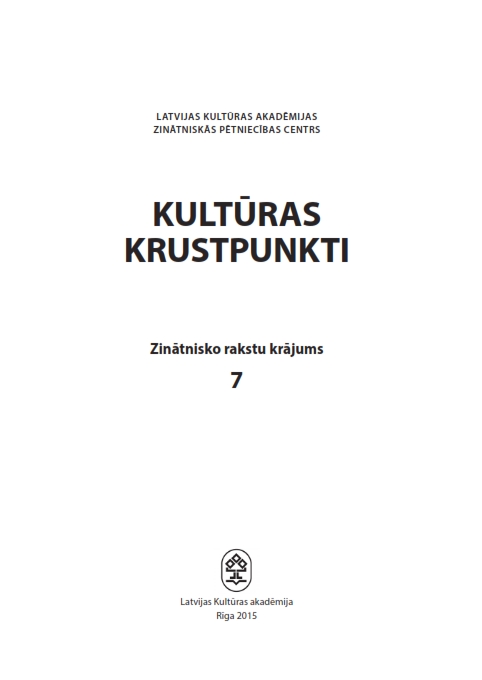Izaicinājumi 21. gs. kultūras organizācijai – kultūras uzņēmējdarbība
Challenges for a 21st Century Cultural Organisation: Cultural Entrepreneurship
Author(s): Ieva ZemiteSubject(s): Fine Arts / Performing Arts, Business Economy / Management, Culture and social structure , Sociology of Culture, Socio-Economic Research
Published by: Latvijas Kultūras akadēmija
Keywords: cultural entrepreneurship; cultural product; impact groups;
Summary/Abstract: In parallel with the development of scientific discourse, a dialogue about the making of cultural entrepreneurship offer becomes more and more significant also among practitioners because the necessity to take a risk and attract resources to the achievement of artistic goals increases. Cultural organisations, which have been state subsidised so far, are often forced to function according to business principles, hence a need arises to define new notions and analyse the specific nature of these activities. It determines the main differences between activities of classical and cultural entrepreneurship. The cultural exception principle defined in the UNESCO Convention has created preconditions which ensure that culture sector institutions and organisations are not under the free market rule, and their contents are protected. At the same time a system is created which allows leaders of organisations, relying on their special status, to demand both financial and material resources which are necessary to ensure the functioning of cultural organisations and institutions. It does not always ensure development-oriented management. The distinction of pure art, culture industry, creative industry and related industries determines the most essential breakdown of the industry into sectors, which also marks the differences in funding their activities. However, entrepreneurship also means creating new values in the context of pure art. It means taking a risk and attracting the necessary resources to achieve the goals.
Journal: Culture Crossroads
- Issue Year: 7/2015
- Issue No: 1
- Page Range: 86-95
- Page Count: 10
- Language: Latvian

